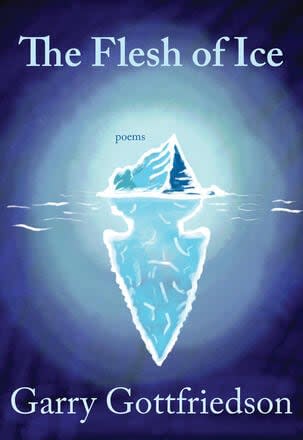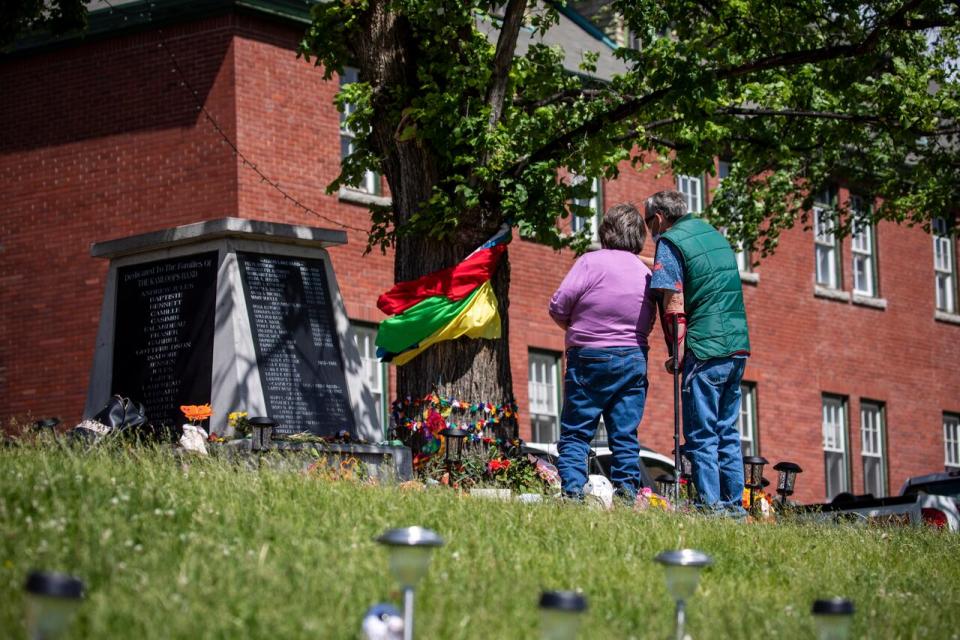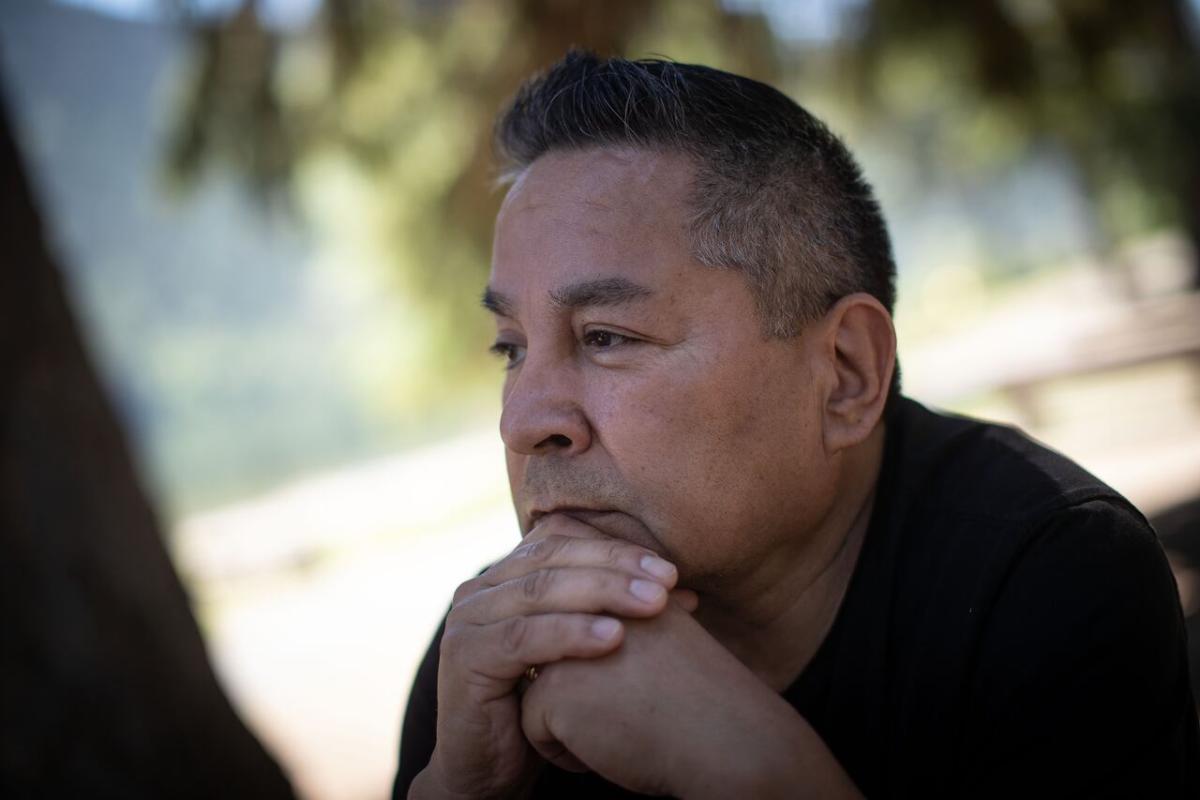The resiliency of residential school survivors takes centre stage in Secwépemc poet Garry Gottfriedson’s latest collection, The Flesh of Ice.
The collection is made up of more than 90 poems, many of which are named for individuals who, like Gottfriedson, were forced to attend the Kamloops Indian Residential School, which operated from 1890 to 1969, when the federal government took over administration from the Catholic Church to operate it as a residence for a day school until it closed in 1978.
Up to 500 students were registered there at any given time, according to the National Centre for Truth and Reconciliation, all of whom would have come from First Nations communities across B.C. and beyond.
Gottfriedson, who attended the institution for five years, drew on his own experience, as well as those of his siblings and parents, for the book. He described the process of gathering their stories as “powerful.”
“All of us that went to residential school, we never talked about it … as siblings,” he told North by Northwest host Margaret Gallagher. “Our children didn’t even know we went to residential school until much later. There was kind of a code of silence.”

The Flesh of Ice is a poetry collection by Garry Gottfriedson. (Caitlin Press)
Giving voice to survivors’ stories in such a public, personal way was important, he said, adding that his goal was “to bring the names of these people forward and pay homage to them, talk about how they survived, but how they were resilient and how there was still beauty to be found even though there was such torment and ugliness in those places.”
Gottfriedson spoke of his mother, Mildred — or Millie — in particular. A residential school survivor herself, she fought to get her children out of the institutions and into the public school system, Gottfriedson said.
In a poem, entitled Millie, he described his mother’s life as a “celebratory protest, a secret the church couldn’t kill,” because, as Gottfriedson told CBC, she rebelled against laws forbidding potlatches in order to return traditional songs and dances to her community.
“My mom took a lot of risks,” he said.
His father, Gus, was also forced to attend residential school.
But after one month, Gus escaped, Gottfriedson said, and went to work on ranches in the U.S. His experience is shared in the poem, Gus.


A memorial outside the former Kamloops Indian Residential School is seen on June 4, 2021. (Ben Nelms/CBC)
Poetry as therapy
Gottfriedson said he writes about challenging and emotional subjects such as residential school as a form of therapy.
“I have to get it out of my body because I don’t want to carry it, to become sick in some way.”
Often, his writings come out in poetic form, he said.
And while it’s a good release for Gottfredson, writing is also an opportunity to explore the subject matter with readers, especially those who are uncomfortable speaking about it aloud.
“Some people just can’t find the words to talk about it. Some people don’t have the voice to talk about it, and some people have just left this world and can’t speak for themselves. I use my gift, I guess, of poetic expression to speak for those who can’t speak for themselves.”
His new book, Gottfriedson said, also contributes to a countrywide effort to acknowledge Canada’s past.
“This book is about the truth,” he said. “Before we can reconcile, we need to talk the truth.”
LISTEN | Garry Gottfriedson on his latest poetry collection, The Flesh of Ice:

